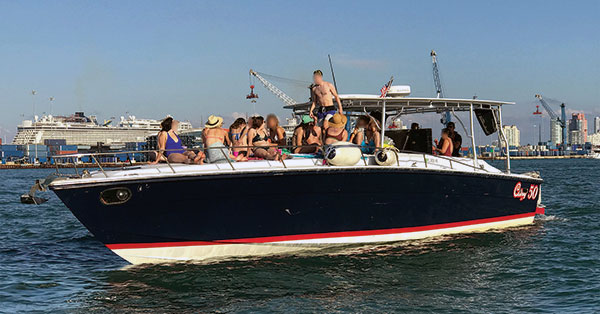I do it. I don't charge anything. My friends just throw in on fuel costs and always help with clean-up....etc.
This is boat for hire as far as coastguard is concerned
I'm not sure I follow. Are you saying that your friends chipping in for fuel and helping with clean-up constitutes a boat for hire in the CG's eyes? I don't believe that's correct. Now, it can be a bit of splitting hairs. Passengers can voluntarily share in costs, but if it is mandatory for boarding, then that makes it for hire.
Illegally operated charter boat operations are more common than you think. Here's an inside look at a Coast Guard sting operation.

www.boatus.com
The friends that I take often give me some money, offer to bring food, etc.
The CG is undoubtedly cracking down on illegal charters, especially in some areas. For the most part, they are not looking for a person taking out a few friends and getting some money for fuel, ice, etc. The illegal charters they are after are a bit more organized, and run pretty much like a charter. Minus those pesky insurance, captain's credentials, etc.

That's not to say that you can't get in trouble, just the same. It all depends on the individual doing the checking. If a group of friends know each other pretty well, and there is no set fee for the trip, then chances of being considered an illegal charter drop significantly.




